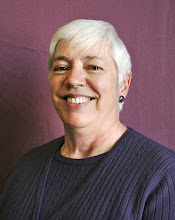Eric Butterworth talks a lot about prayer in his books Discover the Power Within You and The Universe is Calling. His very definite ideas about how to pray effectively seem to remain fairly constant between these two books, in spite of the fact that 25 years passed between their publication dates. EB sees prayer as a way of changing the one who is praying, not God. God is changeless and all knowing. We pray to see things newly not to change things. "The most important purpose of prayer is lifting ourselves to a high level of consciousness where we can be conditioned in mind and body with the all-sufficient life, substance, and intelligence of God." Discover, 111. Once we realize that, we begin to align ourselves with the Truth of the powers within us. "...everything you might need in life exists as a potentiality within you now. Thus the need is not to pray for things, but to become a channel for the release of that cosmic energy that takes form as the things. Claim your good and become a positive channel for its release. " Universe, 90
We are called to constantly turn our attention toward our potential and toward the abundance of substance. Any time we find our thoughts straying toward ideas of lack, limitation, dis-ease, or problems, we know to discipline our thoughts and turn them back to God. "Prayer is simply opening our lives that we may receive what God has always been trying to bestow - conditioning our lives with "God." Discover, 112. EB reminds us that it is God's good pleasure to give us the Kingdom. "Pray to re-establish your contact with divine power, and 'all things shall be added unto you.'" Discover, 112.
So what does it mean to "keep the High Watch?" Does it mean to ignore human needs and the concerns we face as we live our lives? I don't think so. I think it means to move through those temporary conditions from a place of being centered and grounded. According the EB, "Your responsibility to yourself as well as to the divine law, is to keep yourself inwardly poised and to keep your thoughts positive and loving, in spite of injustice or disorder around you." Discover, 83. EB is suggesting that what is ours to do, whether conditions seem challenging for us or for others, is to see beyond appearances to what we know. Every step on our path leads us to remembering our Oneness. EB states, "Say Amen to your good. Put the stamp of acceptance on that which you want to see manifest. and when you pray or treat, be sure that the words are ones to which you want to give total acceptance, and say Amen to that." Universe, 116.
Do we pray only when things are not going well? No. We are always praying. Our thoughts and feelings are our prayers. We are called to pay close attention, then, to what we believe about ourselves. "The word prayer from the ancient Sanskrit root pal-al, means 'judging oneself to be wondrously made.' The practice of prayer should lead us to lift up our eyes and know that, if we are worthy to draw a breath, we are worthy of the fullness of life." Universe, 141-142
In every situation we are to be a non-anxious presence, both when praying with another and in our own prayer life. Anxious thoughts create and feed challenges, so we take charge of our thoughts. We go within to keep the High Watch. "You can only radiate what I call 'the contagion of a triumphant spirit' that comes when you clear your own mind, and get yourself centered and in tune. If you don't alter your thoughts, but remain upset and concerned about this other person, then you will be a part of their problem." Universe, 121.

Here's an observation I usually offer very early in the basic course in theology, HTS 551: When writing theological analysis, stay off camera. The ideal role for the theologian is an observer making comments, not a player invoking eternal Truth. To accomplish this requires disciplined thinking and writing. For example, avoid the use of "we" language, which is inherently coercive. Write in the third person ("It appears..." or "One could argue..."). Occasionally, "I" statements are appropriate, e.g., when describing personal anecdotes. Otherwise, try to stick with descriptive analysis rather than prescriptive testimonies.
ReplyDeleteFor example, your comment: "EB reminds us that it is God's good pleasure to give us the Kingdom."
ReplyDeleteKeeping it in the third person: "EB reminds readers (people, Truth students, etc.) that it is God's good pleasure to give them the Kingdom."
Other than my nit-picking over point of view issues, it was a good effort. I especially liked your comments linking Gary Simmons concept of a "non-anxious presence" with EB's work. (Why not cite Simmons as a source to strengthen your observation?)
ReplyDelete